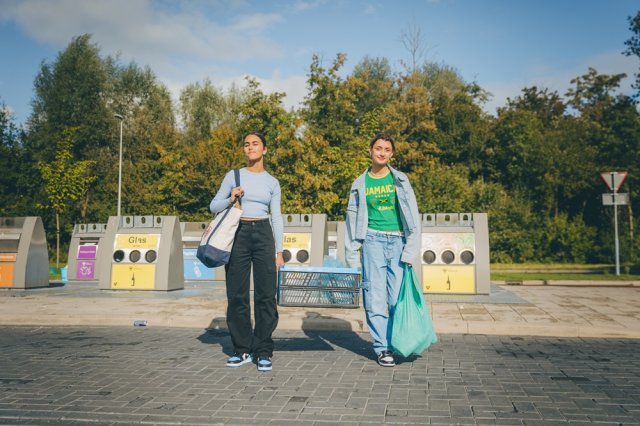New Waste Policy Plan: 'Less waste, better separation: Together we make a difference'
The board of mayor and aldermen in Zoetermeer presents the new waste policy plan: 'Less waste, better separation: Together we make a difference'. The plan focuses on 4 pillars: waste reduction, waste separation, waste disposal and waste collection. With this we tackle waste, based on advice from the citizens' council and national laws and regulations.
"Together with residents, we will work on the new waste policy to reduce waste and separate waste better," said Alderman Blansjaar (Waste). "I am grateful to the citizens' council for their valuable advice, which forms the basis of this new policy."
Reduce waste
The new policy should reduce household waste. Especially packaging such as plastic, cans, drinking cartons, glass and paper are addressed. Less packaging means less waste, lower collection and processing costs and more reuse. There will be a communication campaign sharing practical tips on conscious consumption, reuse and repair. Further actions in the new plan include the introduction of the Yes-Yes sticker for printed advertising and engaging with schools on waste education and awareness. In this way, waste reduction becomes concrete and achievable, contributing to a sustainable city.
Separating waste
Properly separated waste provides valuable resources, saves costs and is better for the environment. Zoetermeerders who separate their waste do so well. But compared to other cities, too few Zoetermeerders separate their waste.
There is much to be gained if Vegetable, Fruit, Garden Waste and Food Waste (GFT+E) is better separated. This waste is a large and heavy part of the residual waste. Better separation is not only good for the environment, but also leads to lower processing costs. This is why there will be a communication campaign with practical tips and clear explanations about proper waste separation and recycling.
Just as nationally, the following applies in Zoetermeer: Source separation where possible, post-separation where necessary. Source separation means that residents separate waste close to home. Source separation ensures well-separated waste that can be better recycled. This is good for the environment. To improve separation at source, low-rise dwellings will receive a new, extra mini-container for Plastic, Tin and Drinks cartons (PBD).
Source separation is not possible everywhere. There is no room for an additional container at home in high-rise buildings. Therefore, post-separation is necessary for high-rise homes. In post-separation, the PBD waste is removed from the waste by the waste processor. Inhabitants of high-rise buildings separate their organic and non-organic waste at home, but can dispose of their PBD waste with their residual waste.
Low-rise homes in the Oosterheem neighborhood and in parts of Noordhove are an exception. These homes, like high-rise homes, have underground containers. As of 2028, these households will be post-separated. In the long term, these households will also switch to source separation. They will then receive minicontainers just like all other low-rise dwellings in Zoetermeer. Due to the new method of PBD collection, the PBD containers on the environmental islands will be closed.
The paper and cardboard containers in the environmental islands will be modified. The opening of these containers will be changed so that only flattened cardboard will fit in them.
Taking away waste
In recent years, the Self-Delivery Depot on Argonstraat has often been too crowded. To reduce crowding, increase safety and improve service, an appointment system will be introduced in 2026. Residents can reserve a time slot online or by phone when they can dispose of waste at the depot.
In addition, the municipality is launching a study to expand or redesign the depot. Pilot projects involving the free use of a cargo bike and trailer and free garden tile drop-offs are also being set up.
Waste collection
With the arrival of the additional PBD mini-container in low-rise homes, the collection schedule is changing. All 3 containers will be emptied once every 3 weeks. In addition, bulky waste collection remains a free service. With a communication campaign about waste disposal, residents will be even better informed about the correct disposal of waste.
Costs
Handling waste costs more and more money. There are many price increases and new national regulations that increase costs. The new waste policy plan also aims to limit cost increases. With one-time investments, this plan makes Zoetermeer's waste system less vulnerable in the future.
Planning and follow-up
The council proposal is expected to be discussed by the City Council in late 2025. Implementation of the plan will run from 2026 to 2030. An evaluation, including participation with residents, will follow in 2029, forming the basis for the next waste and resources policy.

